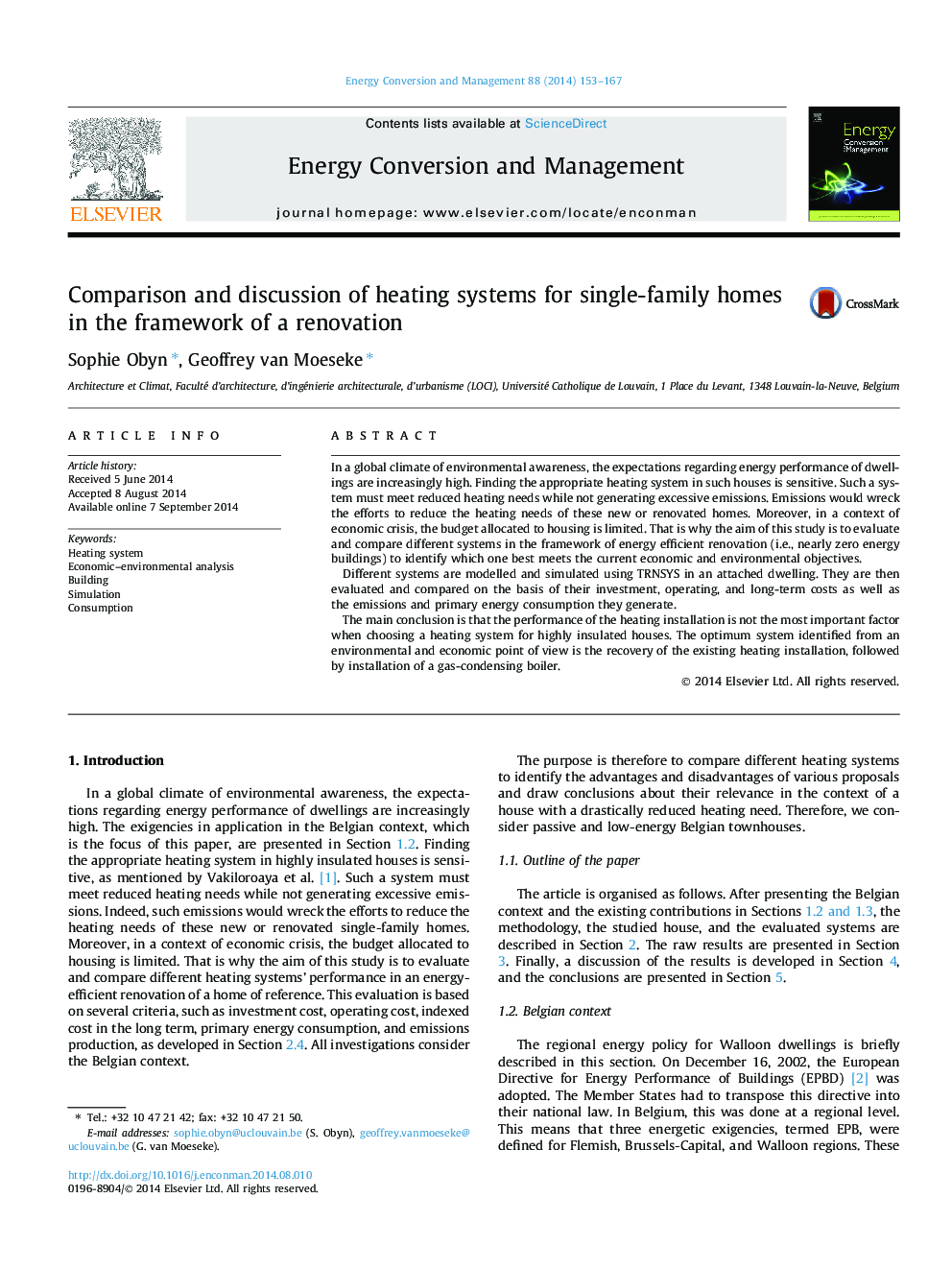| Article ID | Journal | Published Year | Pages | File Type |
|---|---|---|---|---|
| 765624 | Energy Conversion and Management | 2014 | 15 Pages |
•We model a reference single-family house with dynamic simulation software.•We compare several heating systems with economic and environmental parameters.•We identify the best compromise system for three heating need’s levels.•The best compromise is the partial or entire conservation of the existing system.•If the existing system is unrecoverable, best option is a condensing gas boiler.
In a global climate of environmental awareness, the expectations regarding energy performance of dwellings are increasingly high. Finding the appropriate heating system in such houses is sensitive. Such a system must meet reduced heating needs while not generating excessive emissions. Emissions would wreck the efforts to reduce the heating needs of these new or renovated homes. Moreover, in a context of economic crisis, the budget allocated to housing is limited. That is why the aim of this study is to evaluate and compare different systems in the framework of energy efficient renovation (i.e., nearly zero energy buildings) to identify which one best meets the current economic and environmental objectives.Different systems are modelled and simulated using TRNSYS in an attached dwelling. They are then evaluated and compared on the basis of their investment, operating, and long-term costs as well as the emissions and primary energy consumption they generate.The main conclusion is that the performance of the heating installation is not the most important factor when choosing a heating system for highly insulated houses. The optimum system identified from an environmental and economic point of view is the recovery of the existing heating installation, followed by installation of a gas-condensing boiler.
